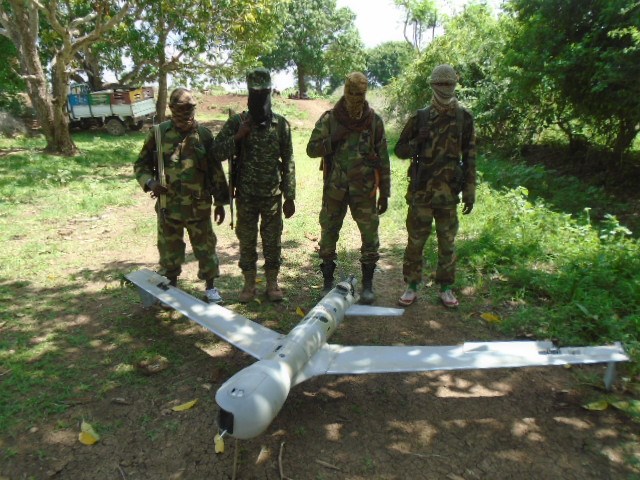Terrorists’ use of modern technology in Somalia problematic – UN Security Council

AFP|MOGADISHU: Terrorists in Somalia have turned to technology for their attacks on civilians and government forces, making it even more difficult to contain them.
This was revealed by Ambassador Jeffrey DeLaurentis, Senior Advisor for Special Political Affairs, United States Mission to the United Nations (UN).
He was addressing the UN Security Council Arria-Formula Meeting (informal meeting) on Transnational Activities of Terrorist Groups.
“Among new and emerging technologies, as we have heard, unmanned aerial systems (UAS) are particularly exploited by terrorist groups to facilitate attacks, conduct intelligence and develop propaganda,” he said.
He said terrorist outfits were using the modern technology to attack soft targets.
The latest terrorist attack was on 19 August when Al-Shabab held civilians hostage at the Hayat Hotel in Mogadishu for 30 hours.
In the process, three insurgents were killed. In total, 21 people were killed and 117 were wounded. It was reported that 106 people, including children and women, were rescued.
DeLaurentis noted that to counter this, the US should continue to work with Kenya – a critical partner in the anti-terror war, and the east and Horn of Africa’s biggest economy.
“The United States is committed to continuing our counterterrorism-UAS capacity-building efforts and appreciates Kenya’s dedication to this important mission. We have seen an increase in terrorist use of unmanned aerial systems and multi-use technologies to threaten soft targets, and we look forward to continuing cooperation with Kenya on these efforts,” he said.
The Global Counter-Terrorism Forum (GCTF) an informal, apolitical, multilateral counterterrorism platform, noted that in the past, terrorists relied on easy-to-operate weapons and vehicles. But with UAS now more readily available at a low cost, they have become increasingly appealing to terror gangs.
Kenya in the Security Council
The UN Security Council Arria-Formula Meeting on Transnational Activities of Terrorist Groups, which was held on 31 August, was convened by Kenya and the United Arab Emirates – two of the 15 members of the Security Council.
In their concept note, the two nations sought to evaluate the effectiveness of the Security Council’s response to the transnational threat posed by terrorist group Al-Shabaab, linked to Al-Qaeda and sanctioned under the 751 Somalia sanctions regime.
Al-Shabaab’s activities in Somalia and the region, including its attacks on Somali troops and African Union missions and cross-border attacks in Kenya and other neighbouring countries, have put pressure on the Security Council.
Since joining the Security Council, Kenya has sought to draw attention to its activities as well as the dangers the group poses.
During the 9 August council briefing on the secretary-general’s 15th biannual strategic-level report on the threat posed by ISIL/Da’esh, Kenya said Al-Shabaab “remains dominant in its transnational activities”, and added that “several countries, including (Kenya), have suffered the senseless atrocities of that terrorist group”.
Kenya referred to Al-Shabaab’s attack in late July in south-east Ethiopia and said it showed the group’s determination to “continue spreading its dangerous ideology across borders”.